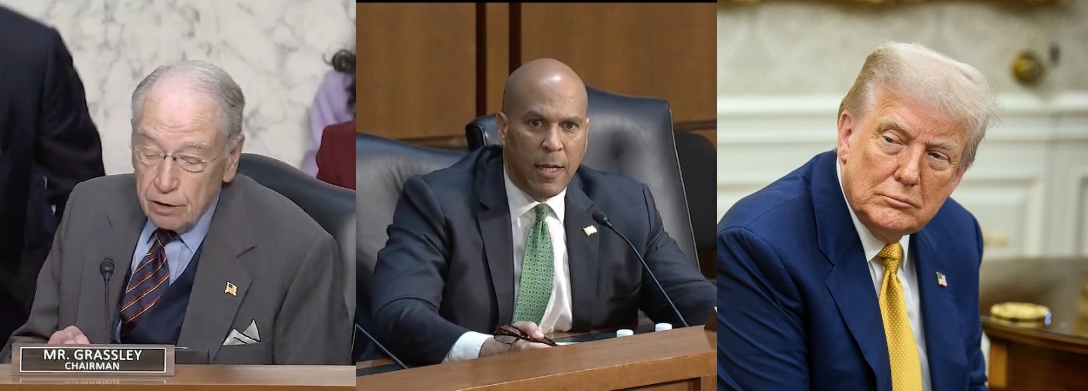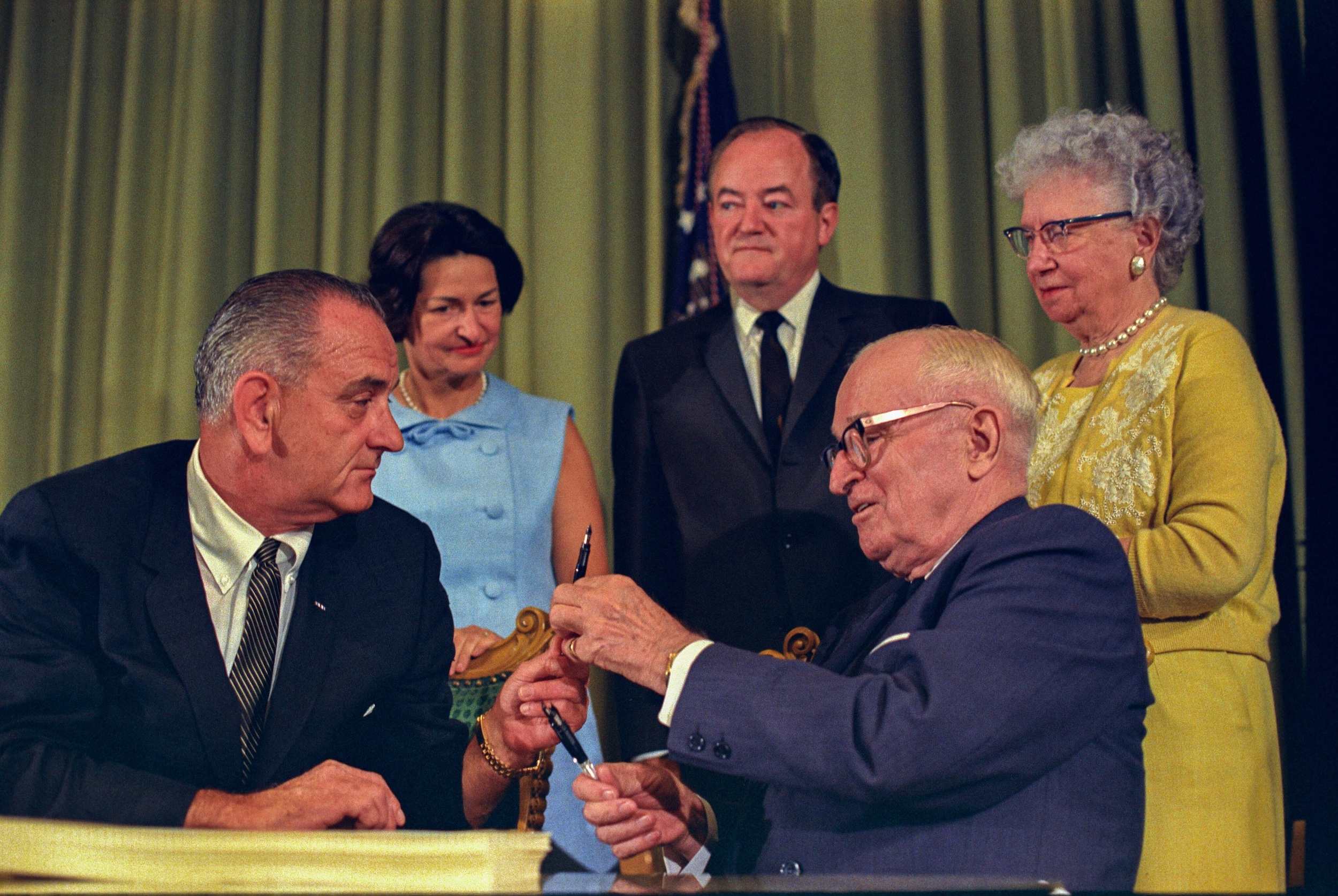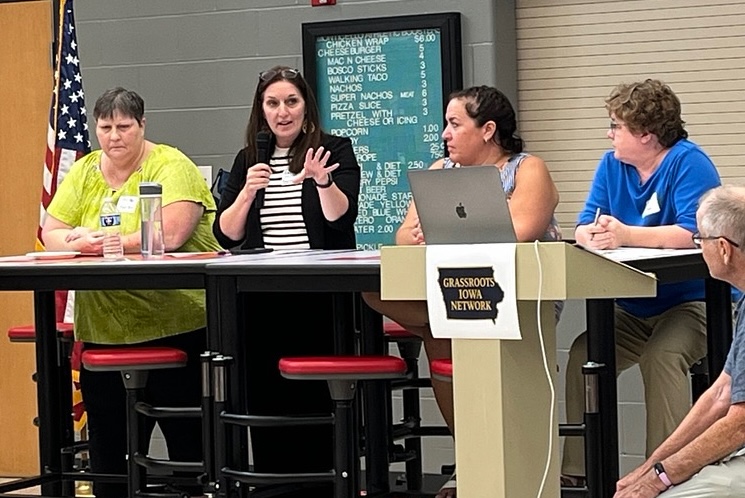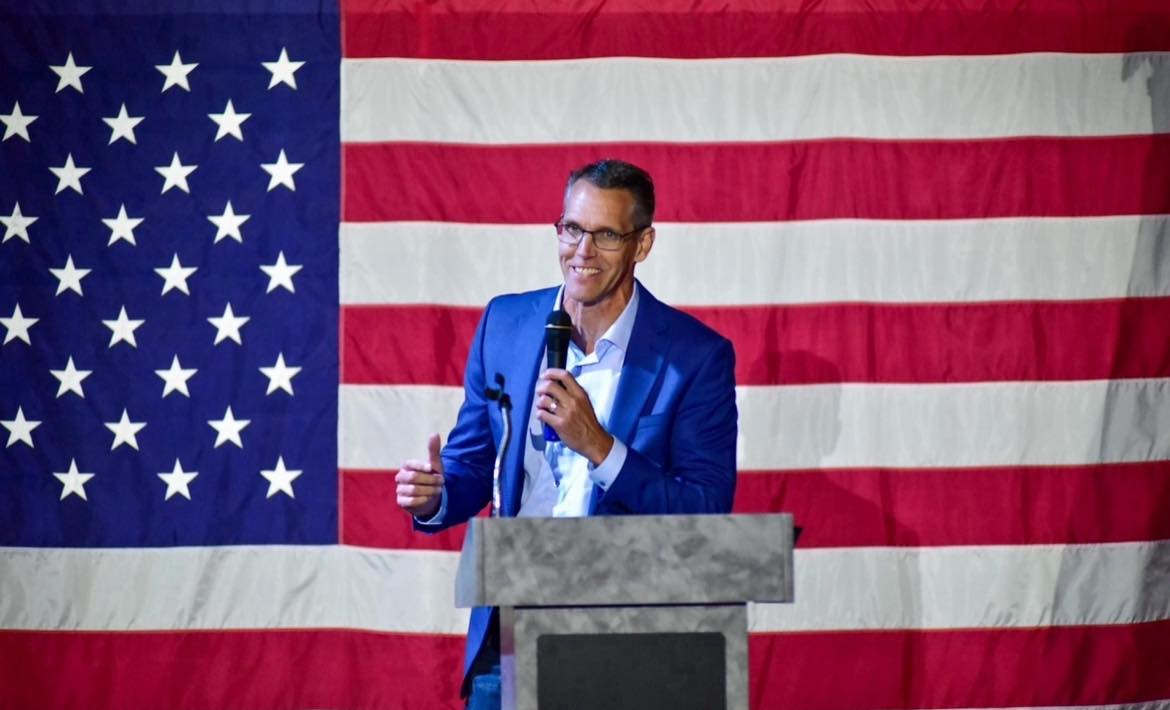Gwen Hope is a corn-blooded central Iowan prone to independent research and petting cats.
AI seems inescapable in 2025. Since 2023, easily-accessible LLMs like ChatGPT have soared as the common public concept of AI. The less public face are the AI tools that governments increasingly use to control and manage the populace. One of the most increasingly ubiquitous uses of these are AI mass surveillance systems.
Automated License Plate Reader (ALPR) systems are preeminent examples of these tools. These systems are already along roadways across Iowa. In the United States, Flock Safety, a tech start-up founded in 2017 currently valued in the billions, develops, licenses, and leases the most common ALPR system software and hardware. Flock is an increasingly visible example, but they are one in a smattering of tech companies across the country cashing in by cashiering citizen privacy.
Flock’s system automatically records and processes still images and/or video through AI to create a unique “Vehicle Fingerprint™”. This “fingerprint” allows users to track a vehicle by license plate plus “type, make, color, state registration, missing/covered plates, bumper stickers, decals, roof racks, and bike racks” (source, pg. 5, 10). The company website boasts of more wide-ranging capabilities in addition.
Governments using ALPR systems are performing ongoing indiscriminate mass surveillance against anything vehicle-shaped (including bikes) on roadways, parking lots, and everywhere in-between. Private businesses and neighborhood associations can join these networks in support of this mass surveillance as well. This may concern you, this may not. However, these companies are developing far more intrusive systems that incorporate data panopticons and drones as part of a largely unchecked, unregulated tech boom. Let’s put the scale of surveillance into focus, shall we?
Continue Reading...





















